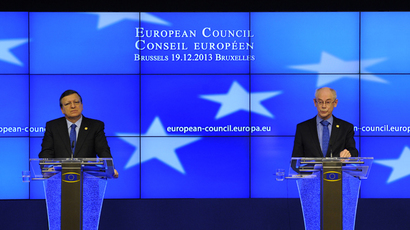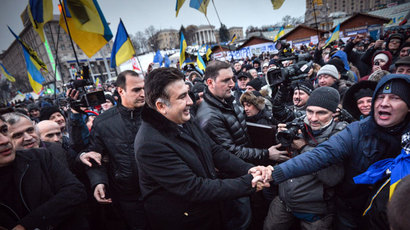West, Ukraine trade blows over Kiev's new public order laws
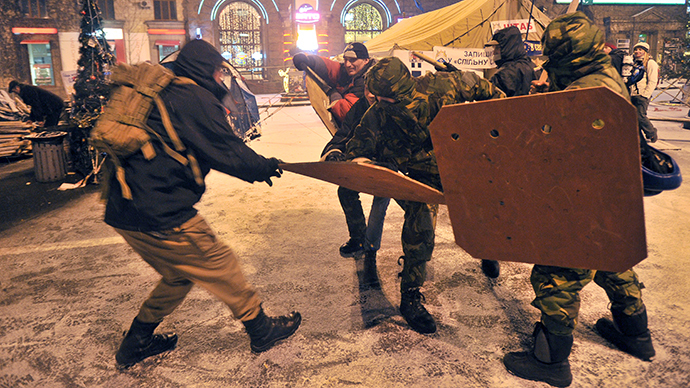
The US and EU have slammed Ukraine for the raft of “undemocratic” laws, including the so-called “anti-rally” bill, adopted amid ongoing anti-government protests. Kiev, in response, rebuked the West for what it considers foreign interference.
Ukrainian President Viktor Yanukovich signed into law a bunch of
"controversial" bills banning unsanctioned gatherings and
imposing multiple restrictions on mass demonstrations, media, and
internet.
The bills, drafted by lawmakers from the ruling Regions Party and
approved by the Ukrainian parliament on Thursday, permit the
arrest of protesters who wear masks or helmets and erect tents or
stages without permission from the authorities.
The new legislation also toughens penalties for the blocking and
seizure of state buildings, bans motorists from forming convoys
of more than five vehicles, criminalizes libel and the
distribution of extremist materials, including via the internet.
Nonprofit organizations receiving funding from abroad are now
obliged to register as “foreign agents”.
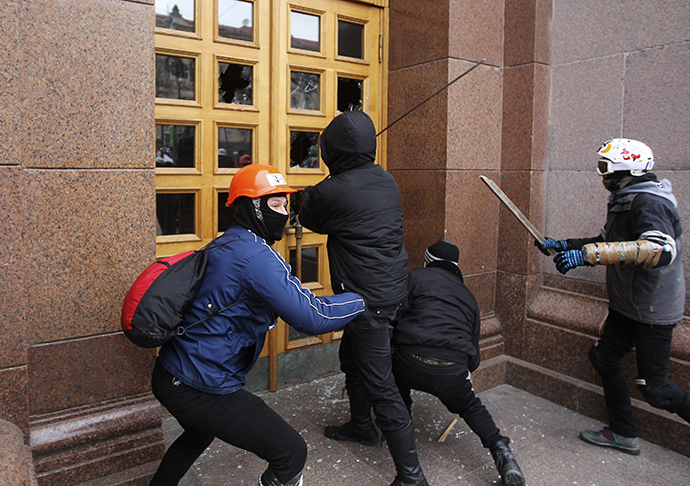
The measures have stirred a wave of harsh criticism from western politicians and rights organizations and outraged the Ukrainian opposition. The laws are widely seen as the government’s crackdown on street protest, known as EuroMaidan, that have gripped Kyiv and several other cities since November, when Yanukovich refused to sign an association agreement with the EU.
Human Rights Watch demanded Saturday the Ukrainian parliament
“immediately” repeals the new legislation, including the
bill on “foreign agents”.
A similar stance was voiced by Amnesty International which said
the legislation “passed at record speed without
discussion” was Ukraine’s “new charter for
oppression.”
“These amendments are a serious blow to basic freedoms, association, and expression,” said Yulia Gorbunova, Ukraine researcher at the organization as published on its official website. “They are obviously a response to the recent protests and are the biggest setback to rights in Ukraine in years.”
Earlier, US Secretary of State John Kerry expressed concern over
the “extremely disturbing” and
“anti-democratic maneuver.” Speaking on Friday, he said
that the “legislation that was rammed through the Rada
without transparency and accountability violates all the norms of
the OSCE and the EU.”
“A true democracy cannot function without dialogue,
compromise, the right to peaceful dissent, and a legislature that
enjoys the people’s trust,” the US State Department
commented in a statement.
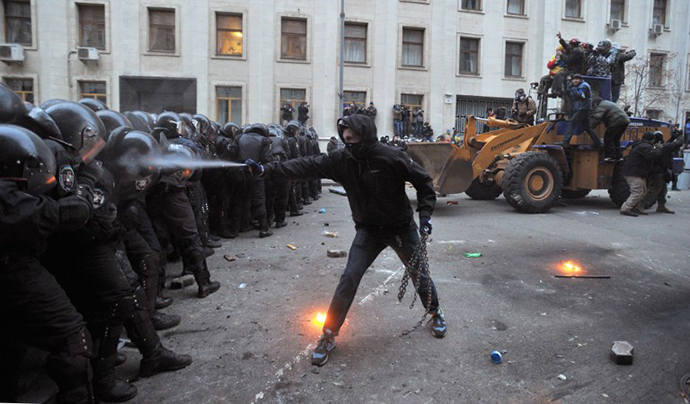
EU foreign policy chief Catherine Ashton called on Yanukovich to revise the legislation and to bring it into line with Ukraine's international commitments.
European Commissioner for Enlargement and European Neighborhood Policy Stefan Fule said he was “shocked” by Ukraine’s “disappointing turn-around.” The politician warned that disrespecting democratic principles will have an impact on freedoms of citizens and Kiev’s relations with the EU.
“There is only one question left after newly signed laws - quo vadis [Latin for "Where are you going?] Mr President?” Fule wrote on his Twitter page.
The Organization for Security and Cooperation in Europe (OSCE)
urged Kiev to veto the legislation “which might be
arbitrarily interpreted and lead to disproportionate restrictions
on media freedom, stifling debate and critical views.” The
body’s Chairperson-in-Office, Swiss Foreign Minister Didier
Burkhalter said he was concerned about the newly adopted laws.
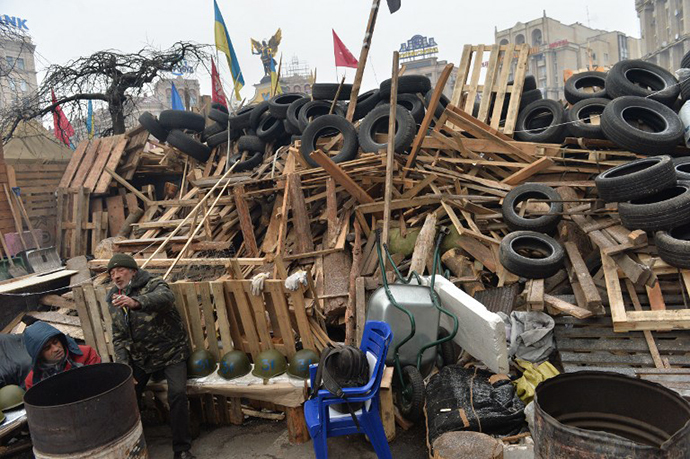
Kiev hit back at criticism saying that the laws that drew such widespread condemnation are similar to laws existing in many other European states. Ukrainian Foreign Minister Leonid Kozhara said that remarks made by a number of foreign officials are interference in the country’s internal affairs and urged them to be objective and balanced in their assessments.
“We stress that the bills…are aimed at implementing a number of norms that already exist in the laws of a lot of European countries, meet commonly recognized democratic standards and international practices and are compatible with the commitments within the OSCE framework,” the Ukrainian Foreign Ministry said in its comment, as cited by Interfax.
The ministry also said it was surprised by Burkhalter’s reaction and expressed hope that “the Swiss Chairmanship of the OSCE will adhere to principles of objectivity and impartiality, which are the most important precondition of successful political chairmanship of this organization.”
The head of Party of Regions in the parliament, Aleksandr Efremov emphasized that none of the new legitimately adopted laws violate any democratic norms. He said that all the bills were based on European, Canadian and American laws.













